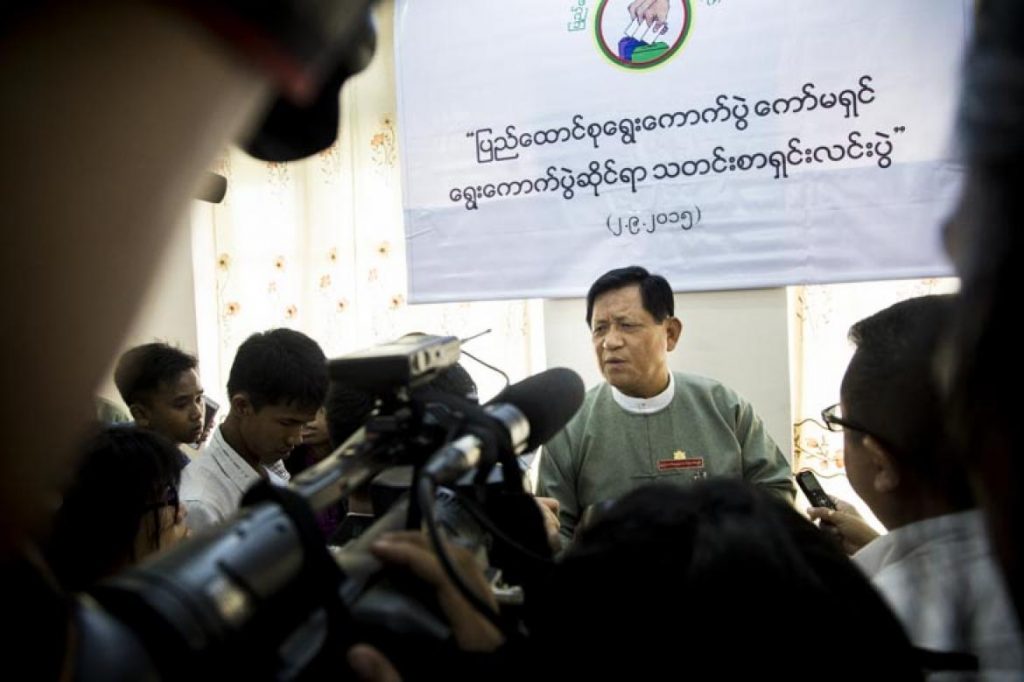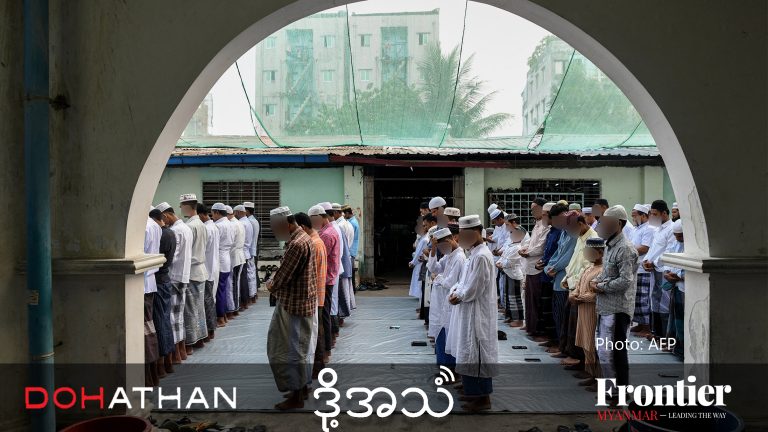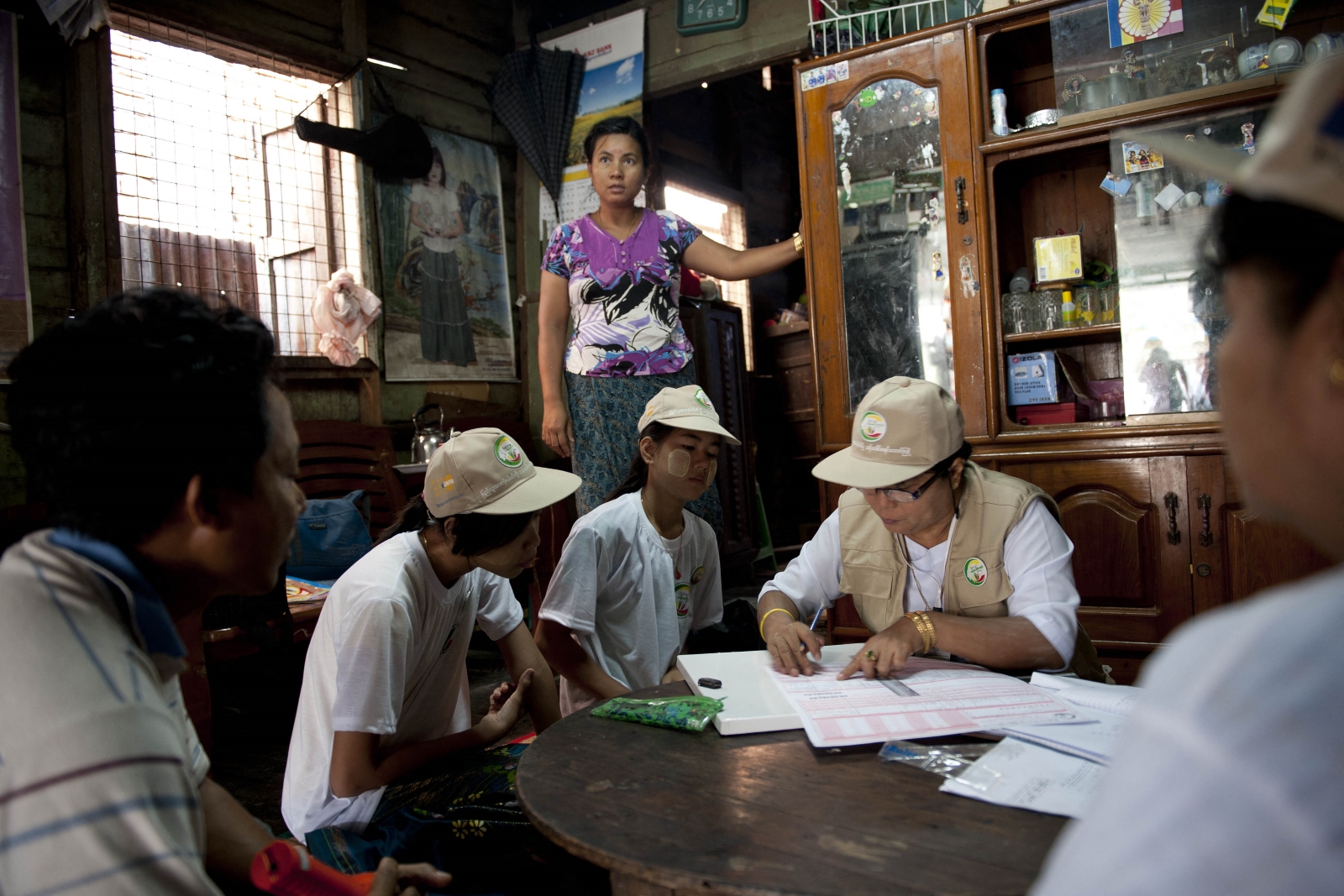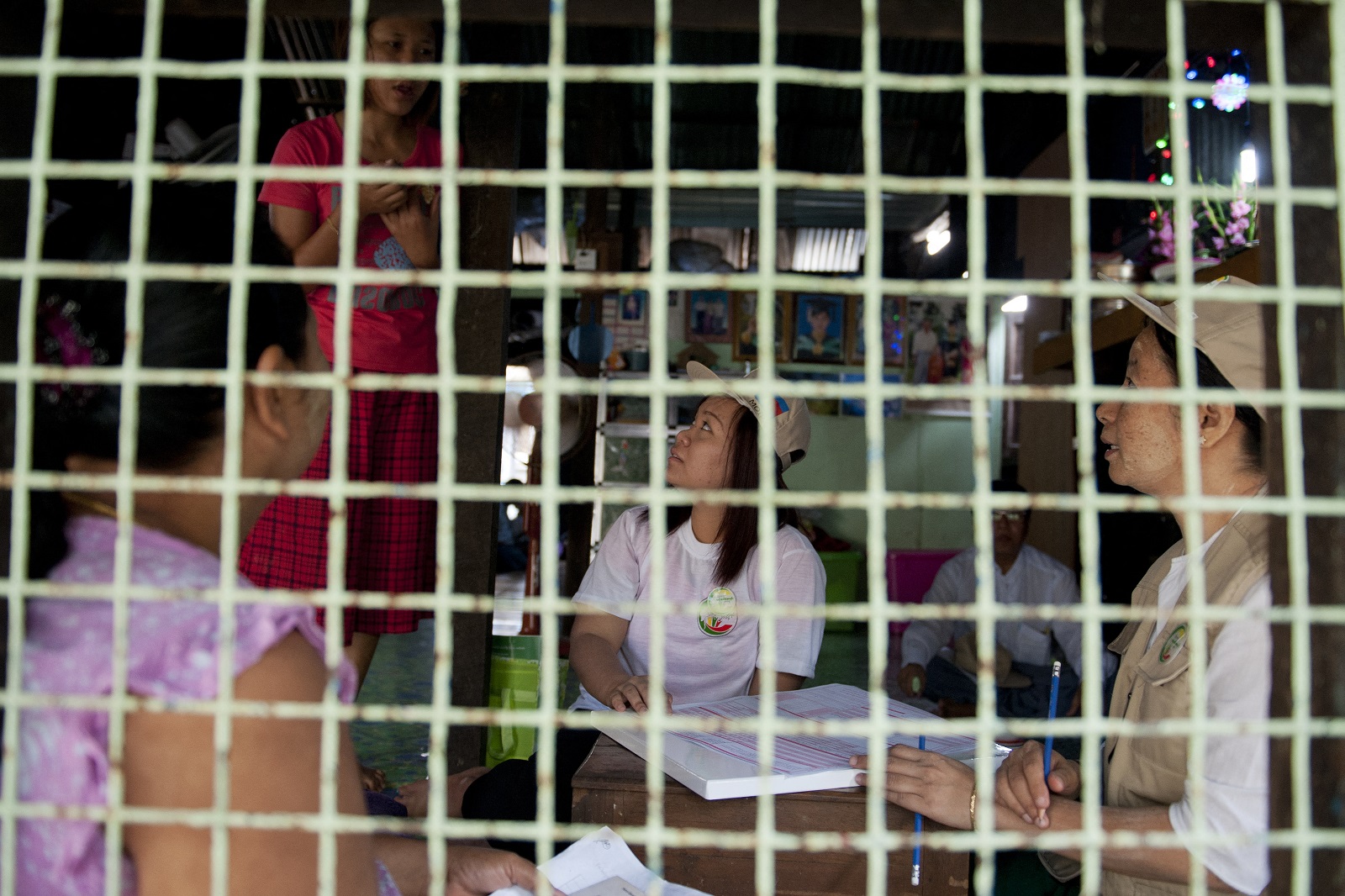The 60-day campaigning period officially started on September 8. After a spending spree, mostly by members of the Union Solidarity and Development Party, all candidates are required to adhere to campaign spending limits.
Not only finance has been regulated. The Union Election Commission has issued stringent campaigning rules, even though a number of political parties had asked that they be softened.
Political parties required to submit speeches to UEC township offices and give advance notice of trips and other campaigning activities. The required information includes the location, date, and start and finish times of the activities. If the UEC does not grant permission and candidates proceed with the activities, they or their representatives can be arrested.
Representatives of four political parties interviewed by Frontier said that the rules and regulations for political campaigning closely resemble Article 18 of the Peaceful Assembly and Procession Act.
The world will be watching
Nonetheless, all signs indicate that compared to the 2010 elections, more foreign observers will be allowed to monitor the ballot and vote-counting. The UEC has met the European Union, the Carter Center and the Jefferson Center to discuss the modalities of election monitoring.
Support more independent journalism like this. Sign up to be a Frontier member.
“There will be almost a thousand international observers to monitor the election,” UEC chairman U Tin Aye told a news conference in Yangon. “And we are still talking to other groups who want to discuss election monitoring.”
The UEC says the EU has already formed a group to monitor the election. Other groups are organising their election monitoring teams.
Muslim candidates rejected
The lack of inclusiveness remains a worry to observers. The UEC has rejected 88 election candidates, of whom about 30 are Muslims. The National Development and Peace Party was hit hardest: all six of its candidates were barred from running. Prominent former Union Solidarity and Development Party MP U Shwe Maung was disqualified on the grounds that his parents were not citizens, a claim he vigorously rejects.
Rohingya politician and human rights activist U Abu Taher, who ran for parliament in 1990 and 2010, was surprised that he had been rejected by the UEC.
“In 1990 and 2010 I was apparently electable,” he said. “But now I have received a letter stating that I am not eligible to run. No reason was given in the letter. There was no reference to any rule or regulation.”
Within seven days from receiving the notification U Abu Taher can file an appeal with the State Election Commission. He’ll do it, although he doesn’t expect to be successful. “I have been excluded, not by law, but by policy. The election commission is probably working on directives they received from superiors.”
The rejection of Muslim candidates is not only a matter of individuals not being allowed to run, said U Abu Taher, but can have far-reaching implications, as the Party Registration Law stipulates that parties must field at least three candidates to maintain their registration.
“I was going to run as an independent, so this incident is not going to affect my party, the Union Nationals and Development Party,” he said. “The registration for our party is pending for 3.5 years already. For other parties, who were going to run candidates, this could mean that their parties will be deregistered. This will render them illegal; they are going to be totally eradicated from the political process.”
No polling in flood-hit areas?
The flooding in July and August affected most of the country. Chin and Rakhine states and Sagaing and Ayeyarwady regions were among the hardest hit, making it hard for politicians to campaign and creating potential problems on voting day.
Chin political parties and civil society groups have asked the UEC to postpone the election in their state.
U Tin Aye indicated at the UEC’s September 2 news conference that the request would be granted. “It is likely that we will postpone the election in Chin State,” he said. “The rehabilitation process might prompt us to postpone in some other areas as well. If the situation is really bad and not suitable for polling, we will do what we can to cope with it.”
U Tin Aye added that the term of the current parliament officially ends on January 31, 2016, after which the new parliament will be sworn in as soon as possible.
NLD alleges campaign rule breaches
The National League for Democracy will lodge complaints over alleged breaches of election campaign rules by four candidates standing in the Nay Pyi Taw Union Territory, an NLD MP said on September 5.
The activities of three Union Solidarity and Development Party candidates and an independent had breached a ban on campaigning before the official start of the campaign period on September 8, alleged NLD MP U Minn Thu.
“We will complain against them to the Union Election Commission and submit supporting evidence,” said U Minn Thu, who represents the Nay Pyi Taw seat of Ottarathiri in the Pyithu Hluttaw.
“These activities will not lead to a free and fair election,” he said.
U Minn Thu said the four candidates include Agriculture and Irrigation Minister U Myint Hlaing, who is seeking re-election to the Pyithu Hluttaw seat of Dekkhinathiri for the USDP.
The NLD MP alleged that a former director-general of the ministry, U Kyaw Win, had campaigned on behalf of U Myint Hlaing in Dekkhinathiri on September 4 by distributing umbrellas, fans and school desks.
According to U Minn Thu, U Kyaw Win had told voters to support U Myint Hlaing because he would do his best to safeguard Buddhism and Nationalism.
U Kyaw Win, who is standing as an independent in one of the two Amyotha Hluttaw seats in Nay Pyi Taw, had also breached campaign rules, alleged U Minn Thu, but he did not elaborate.
He also alleged campaign rule breaches by USDP Pyithu Hluttaw candidates U Hla Htay Win, who is standing in Zeyathiri, and U Wai Lwin who is contesting Popathiri.
U Minn Thu said U Hla Htay Win, a former general, had used military doctors, civil servants, state-owned vehicles and other equipment to donate medicine and medical services in Zeyathiri.
This amounted to campaigning and was in breach of election laws, the NLD MP alleged.
U Minn Thu said U Wai Lwin, a former general and the minister of defence from 2012 to July this year, had donated a total of K64 million to the 16 villages in Popathiri to provide them with electricity.
This amounted to election campaigning, alleged U Minn Thu.
Candidates found by the UEC to have breached election campaign laws are liable to be to fined K100,000 or sentenced to prison for a year.
In cases where a complaint to the UEC is found to be false, the person who lodged the complaint is liable to be sentenced to prison for three years.
(Un)free to report?
In the last week of August the UEC wrote to the Interim Press Council outlining its rules and regulations for election reporting. All Myanmar journalists who want to cover the elections must be registered, the UEC said. The regulations also restrict media organisations to three reporters in each township for election coverage.
The Interim Press Council protested against the rules, saying they would severely limit the print media’s election coverage because each township has scores of polling stations.
The issue was resolved at a meeting between UEC and the Interim Press Council on September 1. U Tin Aye announced after the meeting that all reporters would be free to move about to cover the campaign and voting day, on condition that they register with the UEC.
On May 3 the Interim Press Council released guidelines on “ethical election reporting.” The guideline’s aims are threefold – to ensure accurate, impartial, and responsible reporting. On July 17 the UEC said it expects journalists to follow the guidelines during the campaign period and on election day.







